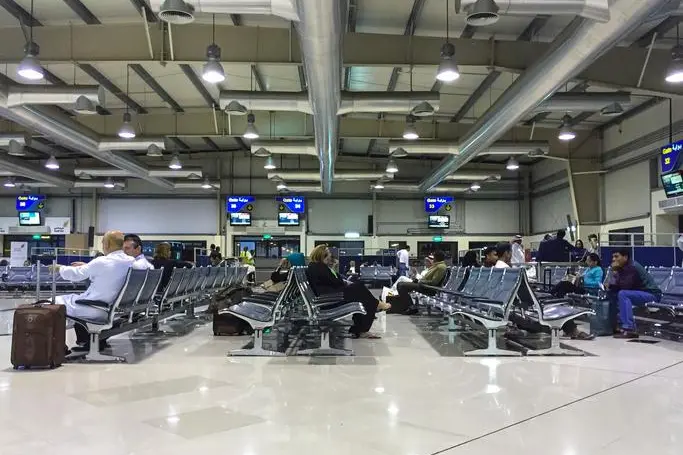PHOTO
MANAMA: Confused passengers have called for clarification on contradicting travel protocols after distraught families were banned from boarding a flight from India to Bahrain because their infants could not produce negative Covid-19 test evidence.
At least seven expatriates were left stranded back in Kerala, including four children, the GDN has learned.
They were not allowed to board a Gulf Air flight on Monday from Calicut’s Karipoor airport based on Bahrain’s updated travel protocols for passengers arriving from India, Pakistan and Bangladesh.
According to the rule, effective from yesterday, all incoming passengers above the age of six must provide proof of negative polymerase chain reaction (PCR) test for Covid-19 – with a QR code – conducted not more than 48 hours before departure.
This follows an alarming surge of cases in these countries, which has been linked to a ‘double mutant’ strain of Covid-19 that is believed to be highly infectious.
While the official announcement exempts children aged below six from taking the test, however, some airlines now insist on a test report for all those stepping or being carried on board their flights, including infants.
“The Health Ministry’s official notice says tests are required for only those aged above six years, but some airlines are insisting on tests even for newborns,” Dr Karthika B, a passenger from Cochin, Kerala told the GDN, who was not prepared to risk being turned away.
“We tried to get clarification on this but had no luck so I had tests carried out on my one-year-old daughter and five-year-old son – I didn’t want to take the risk of a flight refusal.
“It is so stressful to have no clarification following such an important and official announcement,” said the mother who will be travelling with her toddlers and hoping to reach Bahrain today.
The seven passengers who could not board their flights were supposed to have landed in Bahrain yesterday morning soon after the new travel regulations came into effect.
The three adults who had to return from the airport did not have their test results within the stipulated 48 hours.
“They had test results but not in the 48-hour time frame and they were not allowed to board,” one family told the GDN.
“The confusion about children was because the official notice on all Bahrain government sites said a test was required only for those aged above six years, which was also published in the media, but at the airport they refused to accept this.
“It was so disappointing, to come all the way to the airport and having to go back during such difficult times.”
Both Gulf Air and Air India Express representatives told the GDN yesterday that they had received the instructions on mandatory tests for ‘all passengers’ from the Bahrain Airport Authority.
“Gulf Air’s top priority is the safety of its passenger and crew,” said an airline spokesman.
“The airline has applied all directives received by Bahrain and, to further protect all on board, they have made it mandatory that 100 per cent of its passengers on board flights from India, Pakistan and Bangladesh hold a negative PCR with a QR code and taken 48 hours before departure.”
Meanwhile, in a statement, Air India clarified that it had reversed its earlier decision on tests for children.
It said that those under six will now be exempted, and can board without a negative Covid RT PCR Test Certificate, on AI/IX Flights from India to Bahrain.
A comment from the Bahrain Airport Authority was not forthcoming by the time the GDN went to press in the early hours of today.
© Copyright 2020 www.gdnonline.com
Copyright 2021 Al Hilal Publishing and Marketing Group Provided by SyndiGate Media Inc. (Syndigate.info).





















